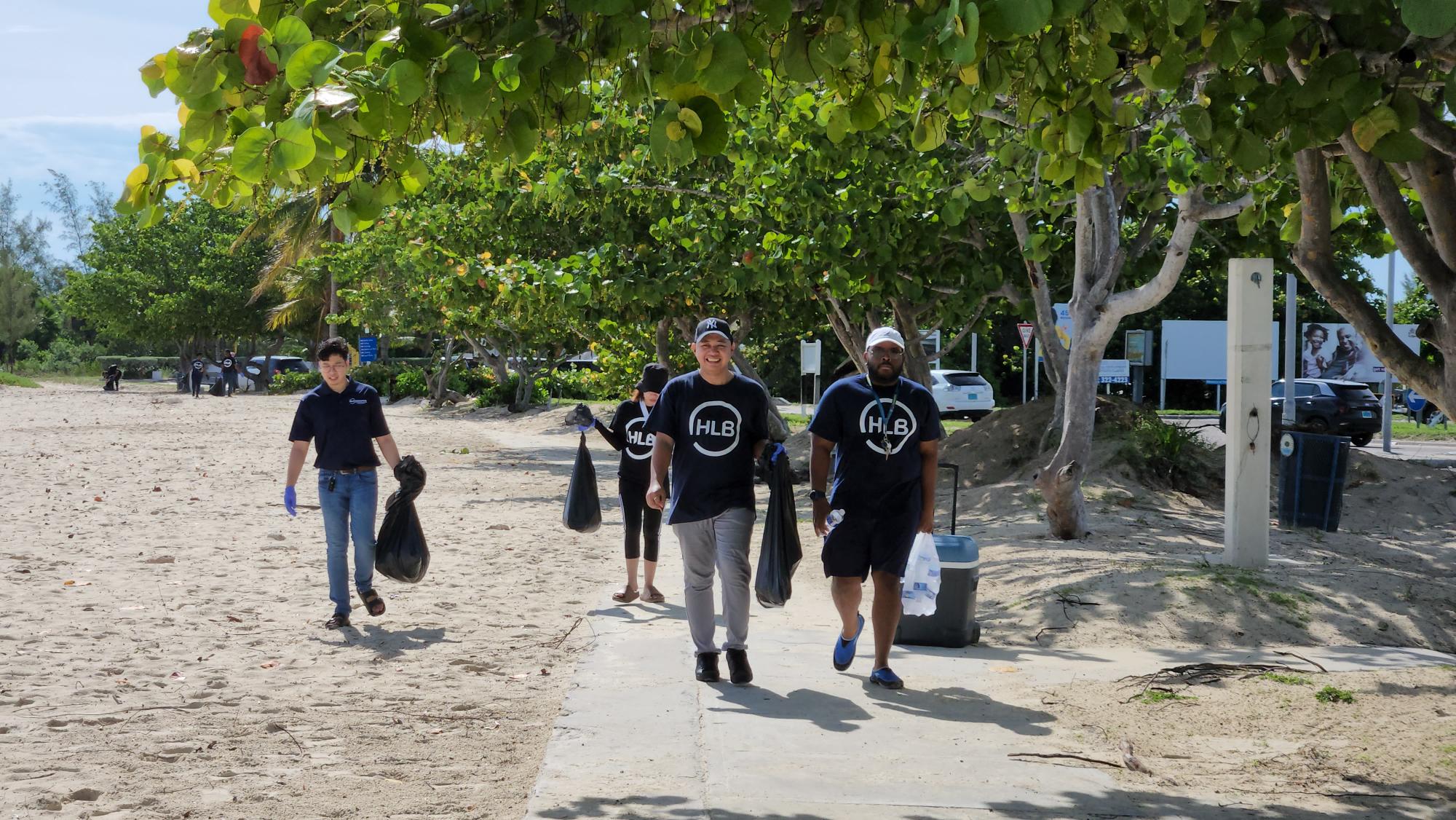The power of giving back: How businesses can impact communities for a better future

In today's complex and ever-changing world, businesses play a critical role in shaping economies and societies. As they operate in a globalised landscape fraught with geopolitical risks, economic uncertainties, cybersecurity threats, and climate change, it has become increasingly evident that the role of businesses goes beyond mere profit-making. The importance of purpose-driven initiatives and giving back to communities has gained tremendous traction, becoming a transformative force that fosters positive change worldwide.
At HLB, we are committed to making a sustainable and positive impact on our clients, people, and communities. Our behaviours and values help us fulfil our overall purpose. We believe we can make a sustainable and positive impact due to our size and reach. After all, we have a global network and people across more than 150 countries.
This network represents diverse cultures, religions, and backgrounds but unites around one aim — to make a positive and sustainable impact. Our people represent a solid base upon which we act, develop trust, and create a solid foundation.
The shift towards purpose-driven business
In recent years, the paradigm has shifted from solely focusing on financial gains to emphasizing the value of social and environmental responsibility. The public, customers, and even employees now demand more from companies. They seek organisations that not only deliver high-quality products and services but also contribute to the greater good of society. This evolving sentiment has led to the rise of purpose-driven business models, highlighting the importance of community engagement and giving back.
Businesses that actively engage in giving back initiatives foster a positive public perception. When a company aligns its corporate values with those of its community, it enhances its reputation as a responsible and compassionate entity. Such a positive image resonates with customers, clients, and partners, creating a sense of trust and loyalty towards the brand. Additionally, a strong corporate social responsibility (CSR) strategy can attract top talent, as employees increasingly prioritise working for organisations that contribute to societal well-being.
A win-win scenario
One of the most significant impacts businesses can have on communities is their ability to address pressing social issues and bridge gaps in inequality. By investing in initiatives that focus on education, healthcare, poverty alleviation, and environmental sustainability, businesses can positively influence the lives of those in need. These initiatives empower communities to thrive, creating a ripple effect of positive change that can last for generations.
But giving back to communities does not solely benefit the recipients of aid; it also offers long-term advantages for businesses themselves. When businesses invest in local infrastructure and social programs, they contribute to the economic growth of the region. Empowered communities become better consumers and potential business partners, creating a more sustainable and stable market environment for companies.
Businesses are an integral part of society, and their operations can significantly impact stakeholders, including customers, employees, investors, and local residents. Engaging in community-focused initiatives fosters a sense of shared purpose and values with these stakeholders. As a result, businesses can build stronger relationships with their communities, creating a win-win scenario for all parties involved.
HLB’s commitment to the community
We live in a complex world of geopolitical risk and economic uncertainty. The organisations and people we deal with face constant threats as they battle to address such challenges as cybersecurity and climate change. Now, more than ever, it's essential for each organisation to do what it can to support people and communities, and this is why HLB will do what it takes to find innovative ways to help. Driven by our shared behaviours and values, we will reach out across the globe and work together for the greater good.
#HLBCommunities Day
#HLBCommunities Day is now in its fifth year. It's the time set aside to celebrate our annual networkwide CSR initiative and our time to say "thank you" to the communities within which we work and live. We know that these global communities drive our success, and this initiative is an integral part of our CSR strategy.
#HLBCommunities Day is not just a time to celebrate but an excellent opportunity to recommit. We want to boost our engagement within local communities through 2023 and beyond and turn our CSR hopes into action.
This year, I am delighted to report that HLB donated our highest-ever 9,203 hours and provided 1,949 volunteers globally to community projects worldwide, reinforcing our commitment to nurturing inclusive, sustainable futures. A huge thanks to those who participated - you were the driving force behind this triumph!
In conclusion, the importance of businesses giving back to communities cannot be overstated. Embracing purpose-driven initiatives and engaging in corporate social responsibility efforts not only benefits the communities themselves but also strengthens the businesses that support them. By fostering positive change, addressing social issues, and empowering those in need, companies can lead the way towards a more sustainable and equitable world. As we have shown through our commitment, businesses can make a significant impact when they align their values with the betterment of society, paving the way for a brighter and more prosperous future for all.
If you would like to learn more, please visit Corporate social responsibility and our commitment to society for further details. In the meantime, here's to helping our clients, people, and communities and moving forward with purpose.
Loan guarantee programs
The Act will also include a loan guarantee program. Here, companies can introduce state-of-the-art technologies like solar PV, hydroelectric, wind, biomass, ocean thermal, daylighting, or fuel cells (that use renewable fuels). However, recipients will have to repay the loan over no more than 30 years, or 90% of the projected useful life for the financed physical asset.






